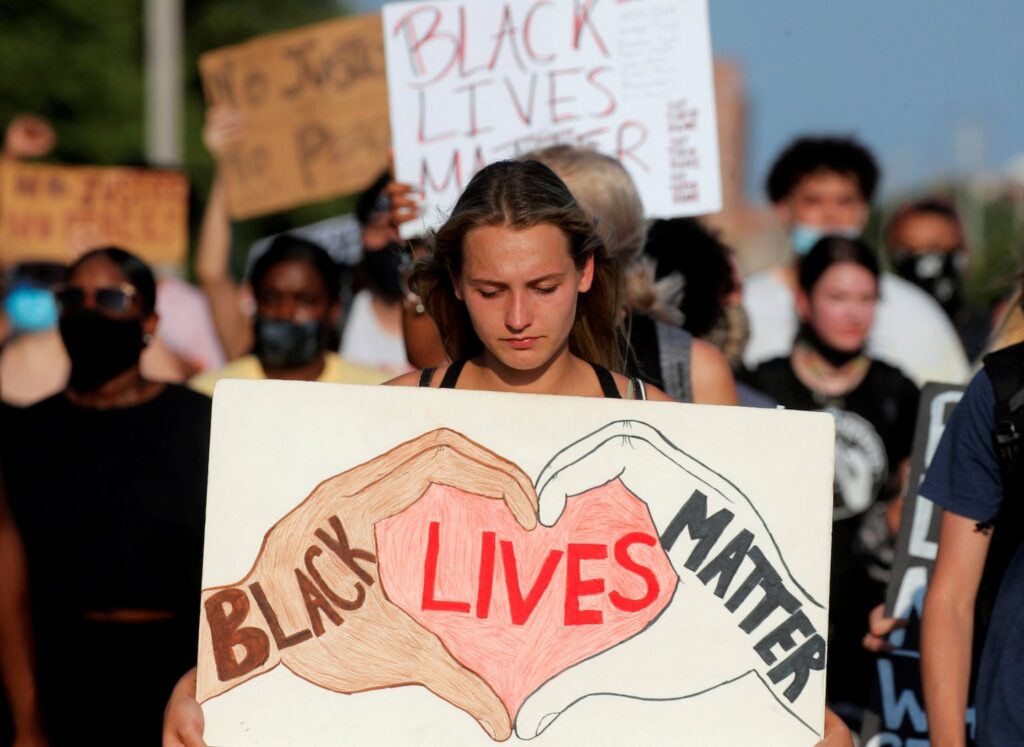Am I my brother’s and sister’s keeper? And who are my brothers and sisters? Just considering these two familiar questions gives us the essence of the Catholic concept of solidarity. Solidarity means, in St. John Paul II’s words, that, yes, “we are all really responsible for all.”
How does this idea affect our everyday habits and decisions? Imagine waking up in the morning with the thought: Today, I am responsible for helping everyone. Notice two things. First, this means I am not waking up focused on me. Solidarity is a rejection of an attitude of selfish individualism.
But the other thing to notice is … it’s overwhelming and literally impossible! Parents may think: I can barely be responsible for everything my two kids need, much less the whole human race. Besides, don’t we need some “self-care” to serve others. Even Jesus slipped away to deserted places in order to “recharge,” right? Maybe I am only responsible for a few others, and then I need to take care of myself?
Being stuck between these two poles – self-centeredness and exhausting ourselves for others – is a sign that as a society, we do not really understand what solidarity means. The history of the term “solidarity” goes back to an ancient notion of civic or social friendship. In his recent encyclical “Fratelli Tutti, On Fraternity and Social Friendship,” Pope Francis reinvigorates this language of “social friendship” as his hope for the post-COVID world.
At its best, true friendship is not exhausting service from which we need to recharge. It’s more like being plugged in, not draining our batteries. Catholic Social Thought invites us beyond our tendency to view self and neighbor as competitors and instead imagine a social life where in giving ourselves, we receive ourselves; where in sharing, we get more.
Think about this description a little, and (hopefully) you will realize it is not a fantasy. We experience solidarity in many ways: gathering to watch your favorite sports team win the championship (or playing on that team), talking for hours and deepening friendship, collaborating on a creative work project, marching for social justice, participating in a choir performing a long-rehearsed piece.
Imagine many aspects of family – especially larger-scale celebrations, such as weddings. As a teacher, I remember those times in the classroom where the students and I are really clicking. These are not moments from which we need to recharge (although we may need sleep!); rather, these are what it really means to be alive.
Catholic Social Teaching on solidarity is about finding and deepening those experiences of shared life with others. And they can be everywhere – at work, in the family, at church, in the neighborhood, in various groups.
St. John Paul, raised under communism, altered the Marxist notion of “alienation” to fit this Catholic view of society in the encyclical “Centesimus Annus”: “A society is alienated if its forms of social organization, production and consumption make it more difficult … to establish this solidarity between people” (No. 41).
Once we grasp this experience, we can consider three concrete ways to make social solidarity more prominent.
First and foremost, we must commit ourselves to activities and groups within which we can truly experience solidarity. Solidarity can sometimes be spontaneous, but real bonds of social friendship emerge when people become more and more committed to one another. We should make our own choices in ways that direct our time and resources (including our work lives) to solidaristic groups.
Second, we can organize the larger structures of society to nurture these activities of social friendship. In part, this happens by offering a level of security that is a prerequisite for this shared activity. Secure jobs, secure streets, various social utilities, education – these are not social friendship themselves, but when they are solid and secure, it is easier to concentrate on spending hours in a rehearsal.
It can also be the case that securing these necessities for a community is itself an experience of solidarity. While the political process is not the central sphere where we enact solidarity, it is charged with the necessary helping tasks that provide the conditions for these bonds to be built up. For example, politics cannot create racial justice, but it can foster conditions that support and enhance bonds of racial solidarity.
Third and finally, Catholics believe in social friendship – in our responsibility for all – because we believe that God has destined the human race to live in unity with God forever. We call this unity “communion,” and we imagine what it will look like when we celebrate the Eucharist.
The Eucharist itself makes us friends with all those, far and near, who share in the same body and blood. But our entire activity as the Church is meant to be “eucharistic,” an effective sign – a sacrament – of the final unity of humanity in Christ. This heavenly destiny is the realization of our human call to become fully alive by giving ourselves in bonds of solidarity.
When we pray that God’s will be done on Earth as it is in heaven, we ask that those eternal bonds of human social love be built up here and now, today, in all the communities that make up our lives.
Cloutier is associate professor of moral theology at The Catholic University of America.

